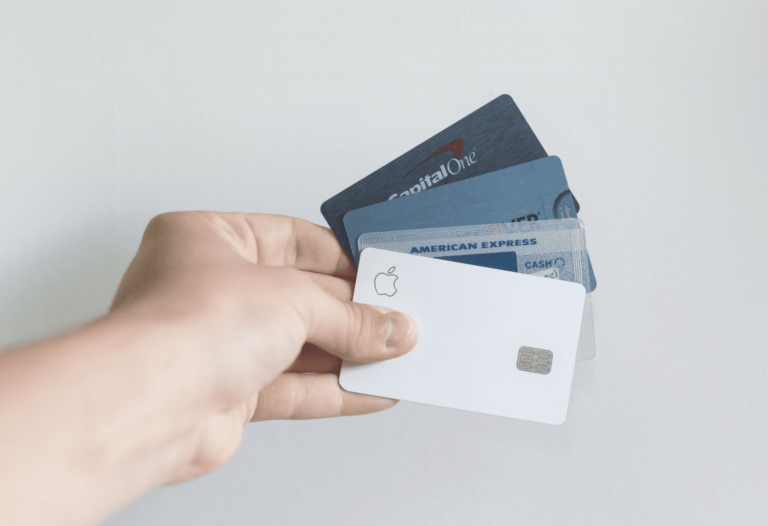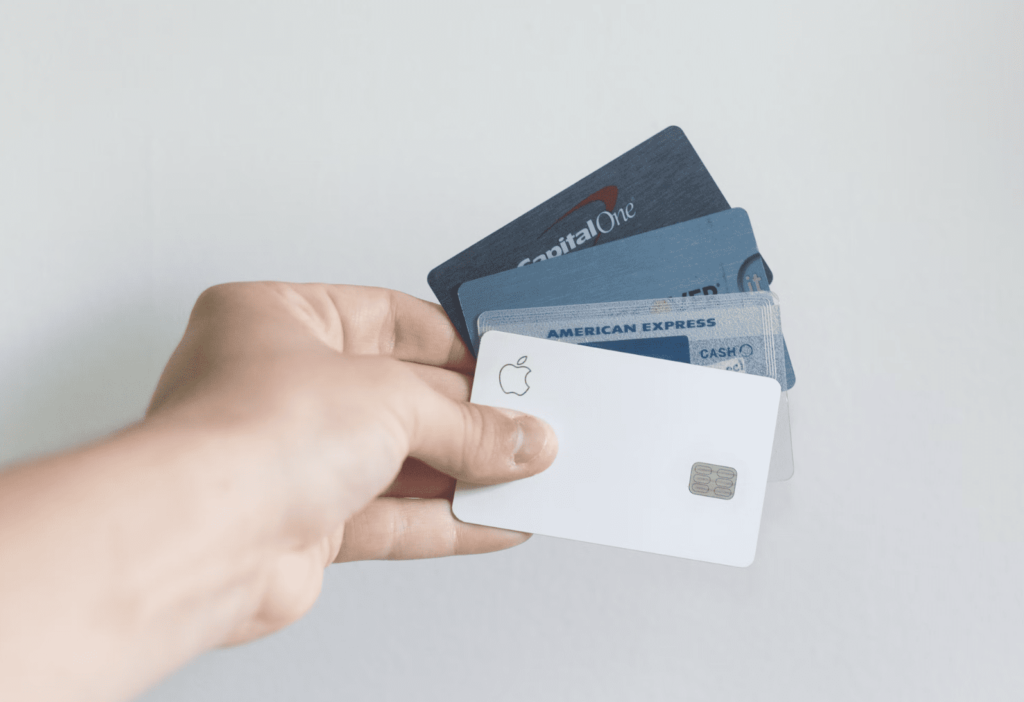Accepting card payments can be costly for many businesses. With average credit card processing fees ranging from 1.70% to 2.50% per transaction, card payments can take tens or even hundreds of thousands from your bottom line annually.
But eliminating credit and debit cards as a payment method simply isn’t an option for the vast majority of businesses. While we’re not quite in a cashless society yet, consumers rely on credit cards too much for your business to survive without them.
Fortunately, some credit card processing options are cheaper than others. This guide will walk you through the top ways to get cheap credit card processing and explain how to get the lowest possible processing fees for your specific business.
11 Ways to Get the Cheapest Credit Card Processing Rates
These are the top 11 ways to get cheap credit card processing. Each of these options can help lower your rate, and you can apply several of them simultaneously to cut costs further.
1. Negotiate Your Rate
Negotiating your fees directly with your payment processor is the best way to get the cheapest processing rates. There’s a common misconception that businesses need to shop around and switch providers to save money, but that’s simply not the case.
Your merchant services provider does not want to lose your business. They get paid each time one of your customers pays for something with a credit or debit card. This means that they’d rather earn a little less per transaction than lose your account altogether.
Use this leverage to your advantage. Pick up the phone and call your processor. If they won’t budge after the first attempt, keep calling. Ask to speak to someone else.
If you need some assistance, contact our team here at Merchant Cost Consulting. We’ll negotiate your rates directly with your processor to help lower your credit card processing costs. Get a free audit to find out how much you can save without switching.
2. Get Interchange-Plus Pricing
Credit card processing is not a one-size-fits-all industry. There are several different pricing options and contract structures offered by various payment service providers.
Of all these options, interchange-plus pricing will be the cheapest way to accept card payments.
With the interchange-plus model, you’re paying the interchange fee imposed at the credit credit card network level (Visa, Mastercard, Discover, Amex) plus a processor markup.
Lots of businesses opt for flat-rate credit card processing because it’s the easiest to understand. But this structure is almost always more expensive. Here’s why.
Let’s say you sign up for a flat-rate plan that’s 2.9% + $0.15 per transaction. For a $100 sale, you’re paying $3.05. But the interchange rate at the card network level might only be 1.45% + $0.10. With a flat-rate contract, you’re paying double the interchange rate.
Conversely, if you had an interchange-plus plan that was a 0.70% markup on top of the interchange rate, you’d pay $2.25 for the same transaction. $0.80 savings might not seem like a ton. But at 400 transactions per day, that’s over $116,000 saved in just one year.
3. Avoid Long-Term Contracts With a Payment Service Provider
Sales reps for processing companies often pitch extended contracts as a way to lock in the lowest possible rates for the longest time. But this is far from the truth.
Your processor is not going to lose money on your account. They also know that card networks increase the interchange rates at any time. So your contact may have fees baked into it today to anticipate a rate increase from Visa or Mastercard that won’t be happening for another year or two.
In addition to these higher rates, long-term contracts can be tough to get out of. They usually have sky-high termination fees that could cost you tens of thousands of dollars just to opt-out.
Long-term contracts are difficult to negotiate as well. So even if you’re not planning to switch processors, you should always be seeking the most flexible contract terms.
4. Avoid Equipment Leases
Credit card processing equipment can be expensive, especially for startups and small businesses without lots of capital in the bank.
Many merchant service providers offer equipment leases as a way to eliminate upfront costs and help businesses accept payments immediately. Rather than investing $5,000 today, a provider may charge you $500 per month for the next 36 months to lease the equipment.
But in this type of scenario, you just paid $18,000 for something that could have cost you $5,000. Not to mention the fact that you don’t own the equipment, and you’ll have to renew the lease to continue using it. Even if the rate stayed the same, which would be rare, you’d pay $36,000 over six years on something that could have cost you $5,000.
It’s simple math—avoid equipment leases at all costs. Just buy your equipment outright to accept credit card transactions.
5. Cut Unnecessary Fees
Beyond transaction fees, it’s common for credit card processors to add all types of extra fees to your statement every month. The vast majority of these fees are unnecessary and can be removed from your bill with a phone call and some negotiations.
Examples include:
- Statement fees
- PCI compliance fees
- Setup fees
- Reporting fees
- AVS fees
- Terminal fees
- CPU fees
- Discount fees
- Payment gateway fees
The list goes on and on.
These monthly fees can add up quickly to several hundred dollars in fees that could otherwise be eliminated altogether from your bill.
6. Monitor Your Statements
Monthly statements from merchant services providers are intentionally difficult to read and understand. Many business owners don’t really know what they’re looking at when these statements arrive, and furthermore, the fees have already been deducted from your account.
As a result, monthly statements tend to get filed in a drawer or saved in the cloud to never be viewed again.
But taking the time to thoroughly review your statements each month can save you money on credit card processing. Here’s why.
Monthly reviews will help you spot any anomalies in your rates and charges. You can compare each statement to previous statements to see if your processor added any a new monthly fee or increased your rates. These are things that happen more frequently than you might realize.
If you don’t have the time to monitor your statements each month or the statements are simply too daunting for you to understand, we can help. As part of our service offering at Merchant Cost Consulting, our team can monitor your statements each month and identify any unnecessary charges or increases. Then we’ll work with your credit card processor to get those fees removed and refunded when possible.
7. See if Your Business Qualifies For Discounts
Depending on your business type or industry, you might qualify for discounted credit card processing rates.
Examples include schools, educational institutions, government offices, nonprofit organizations, and more. Certain high-volume businesses and B2B organizations may also qualify for discounted rates. So always inquire about these options to get cheaper rates.
8. Prioritize Chargeback Prevention
Chargebacks are expensive. These funds are automatically reversed from your account by the bank—without your control or consent.
In addition to the lost funds, you’ll also be hit with chargeback fees imposed by the processor. If you sell a physical product, the items won’t be returned to you either.
Getting too many chargebacks can prove to be even more expensive for your business. Processors might see you as a higher risk and increase your rates to adjust for this new designation.
9. Pass the Credit Card Fees to Your Customers
This option can be a bit tricky, and it’s not for everyone. But some businesses choose to offset credit card processing fees by passing the burden to their customers.
Passing merchant fees to customers can come in the form of surcharging or convenience fees.
If you’re thinking about doing this, just understand that there are laws imposed at both the federal and state levels that must be followed. Credit card surcharging is not legal in every state, so you must do your homework to ensure you’re following local laws.
10. Set a Minimum Purchase Amount
Establishing a minimum purchase amount can be an effective way to save money on credit card processing. This is especially true for merchants selling low-ticket items.
Card networks and processors typically charge a minimum fee, regardless of the transaction amount.
So if you’re selling a bottle of water for $0.99 and your processor charges a $0.55 minimum, over half of the sale just went to cover the card payment.
Merchants in the United States can set a minimum credit card purchase amount of up to $10.
11. Restrict the Cards You Accept
Certain credit cards are more expensive to accept than others. More specially, Visa and Mastercard are typically cheaper than Discover and American Express.
That’s because Discover and Amex operate as card networks and issuing banks under one roof.
Just tread cautiously if you’re thinking about going this route. You could be turning away customers if you don’t accept their preferred payment method. It’s also against the rules of card networks to accept their card type, but encourage customers to pay using another card. So if you want to do this, you’d have to eliminate the acceptance of a certain card altogether.
How to Save Money on Credit Card Processing — Factors to Consider in 2023
There are certain factors you need to consider as you’re deciding how to get the cheapest credit card processing rates. Not all of the tips discussed above will work if you fall into specific categories. So use the criteria below to narrow down the best options for your business.
New Account vs. Existing Merchant Account
If you already accept credit cards, your process will look very different from a business that’s accepting card payments for the first time. New merchant accounts will need to spend more time shopping around and evaluating different merchant service providers, whereas existing businesses should be looking for ways to cut current processing costs.
Switching Credit Card Processors vs. Negotiating Your Rate
Even if you can find another processor that offers lower rates than your existing processor, switching is rarely the best option. New processors will likely only be slightly less than your existing ones, and those rates will almost certainly rise within the first 12-24 months of switching. Furthermore, there are additional costs related to your equipment and existing payment infrastructure that need to be taken into account as well.
In-Person vs. Online Payments vs. Phone Payments
The cheapest way to take credit cards will always be in person. This transaction environment offers the least amount of risk to card networks and processors, so the fees are always lower. If your business operates online or takes payments over the phone, there are still ways to get cheap processing if you follow the options listed earlier in this guide.
Final Thoughts on Getting Cheap Payment Processing Fees
Cheap credit card processing is out there if you know where to look, and switching processors is not the best way to get it. Instead, you can look for ways to save money on credit card processing by negotiating rates with your existing processor.
You can also save money by accepting credit card payments in person, avoiding chargebacks, setting a minimum purchase amount, and passing fees to your customers. Avoiding equipment leases and monitoring your monthly statements are also crucial for keeping costs low.
If you need help getting cheap credit card processing, we can help. Our team at Merchant Cost Consulting can help lower your rates—without switching processors. Get a free audit and analysis today to find out how much you can save.




